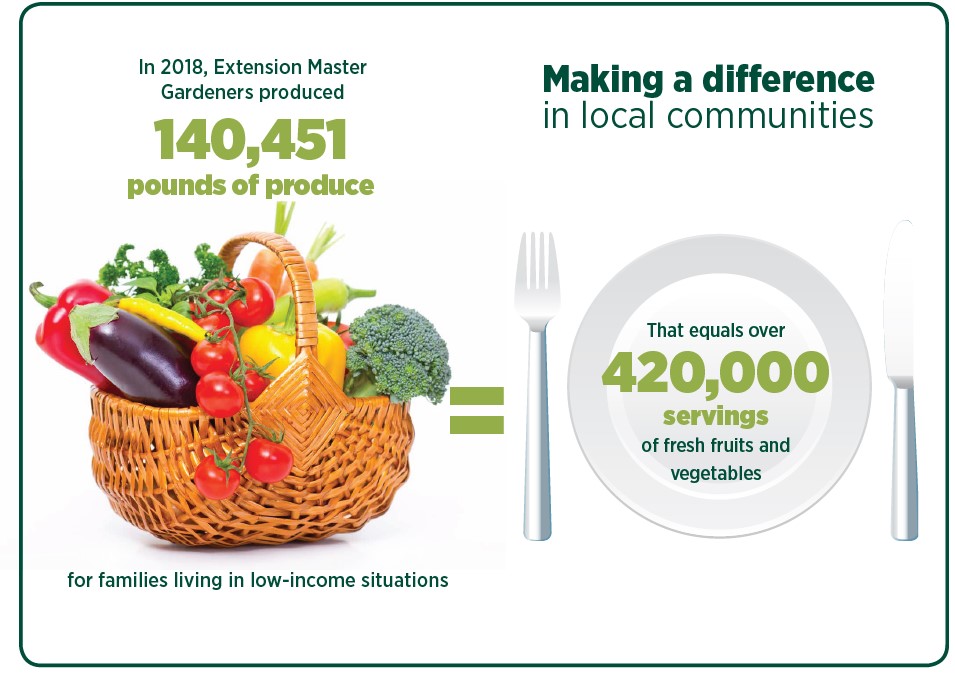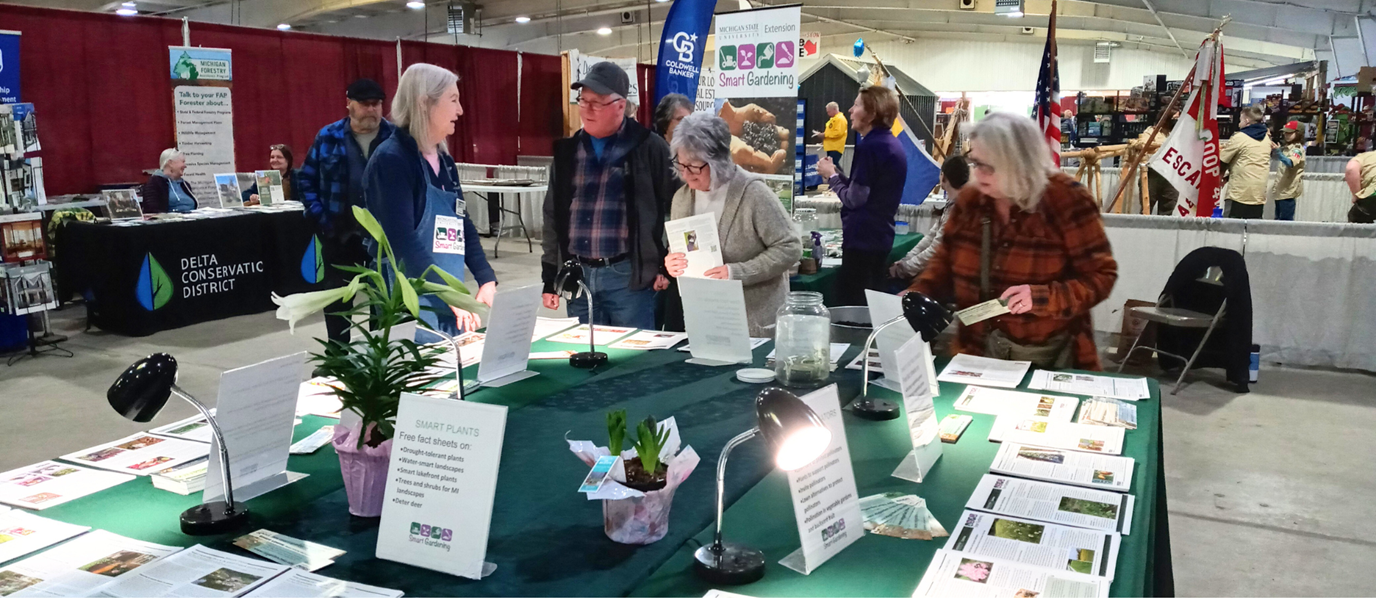The Michigan State University Extension Master Gardener (MSU EMG) Program trains and supports volunteers who share the university’s horticulture knowledge with Michigan residents and communities. Participants receive instruction from MSU experts in environmentally sound, research-based gardening practices. In return, trainees complete at least 40 hours of volunteer service within 12 months to earn certification as MSU EMGs. Many continue their involvement for years, maintaining certification by contributing a minimum of 20 volunteer hours and 10 education hours annually.
In 2024, 1,876 Extension Master Gardeners volunteered 96, 653 hours on 788 approved projects across the state. This has an economic value of over $3.25 million.
To do this important work, EMGs travelled a total of 472, 311 miles to and from project sites. This has an economic value of $66,124.
MSU EMGs value life-long learning! In 2024, MSU EMGs spent 27,065 hours on continuing education to stay up to date on current research.
MSU EMGs value knowledge-sharing! In 2024, MSU EMGs helped answer 6,179 Ask Extension questions from 82 Michigan counties about gardening, and 1540 phone calls from residents of 80 Michigan counties on the MSU Extension Lawn and Garden Hotline. These teaching opportunities helped Michigan residents make safer and more sustainable gardening decisions.
.png?language_id=1)
MSU EMGs fulfill the mission of the program with important work in four key areas. One of these is food insecurity. MSU EMG impacts in this area were measured in 2018 and showed significant contributions. 294 MSU EMGs volunteered 13,000 hours and produced over 140,000 pounds of produce which was donated to local food pantries. That added up to over 420,000 servings of fresh fruits and vegetables for Michigan residents.

Smart Gardening Initiative
Launched in 2014, the Smart Gardening Initiative helps both novice and experienced gardeners adopt research-based practices that save time, money, and natural resources. The program simplifies Integrated Pest Management (IPM) through 49 tip sheets and 13 educational videos, making science-backed techniques accessible to the public. As of 2024, 226 Extension Master Gardeners earned Smart Gardening certification, supporting outreach by answering questions and distributing materials at farmers markets and community events. In fact, over 17 million people were potentially reached in 2024 through all forms of Smart Gardening messaging. The initiative emphasizes reduced use of chemical fertilizers and pesticides, encourages soil testing, and promotes water conservation and informed plant selection. It also raises awareness about pollinators and invasive species, continuing to grow as a trusted educational resource.

In 2024, Smart Gardening volunteers assisted at over 90 events held in 13 Michigan counties, reaching over 30,000 people.



 Print
Print Email
Email